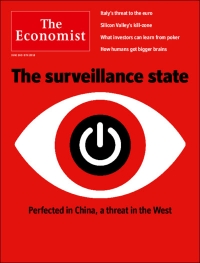 China is reversing the commonly held vision of technology as a great democratizer, bringing people more freedom and connecting them to the world. In China, it has brought control, the New York Times reports:
China is reversing the commonly held vision of technology as a great democratizer, bringing people more freedom and connecting them to the world. In China, it has brought control, the New York Times reports:
Even so, China’s ambitions outstrip its abilities. Technology in place at one train station or crosswalk may be lacking in another city, or even the next block over. Bureaucratic inefficiencies prevent the creation of a nationwide network.
For the Communist Party, that may not matter. Far from hiding their efforts, Chinese authorities regularly state, and overstate, their capabilities. In China, even the perception of surveillance can keep the public in line.

Credit: ASP
“This is potentially a totally new way for the government to manage the economy and society,” said Martin Chorzempa, a fellow at the Peterson Institute for International Economics. “The goal is algorithmic governance,” he added.
The ruling Communist party has embraced A.I.-based surveillance technologies to police its 1.4 billion citizens. By 2020, analysts estimate that police will spend $30 billion on surveillance technology, including nearly 300 million cameras.
Instead of allowing for free and open platforms, China’s tech boom innovation seems to be expanding in the opposite direction: towards an authoritarian tech dystopia, reports suggest.







